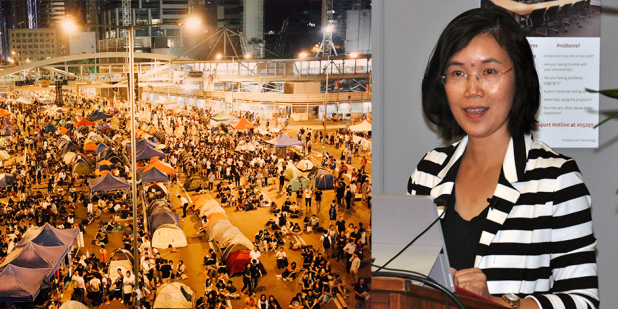Happy Lunar New Year from the USC US-China Institute!
Roselyn Du on Media Portrayal of "Occupy Central"
Visiting scholar Roselyn Du examines how the Occupy Central in Hong Kong was presented in the news coverage by U.K., U.S., Hong Kong, Taiwan, and mainland China media.

The 2014 Occupy Central crisis in Hong Kong is seen as China’s biggest political struggle since June 4, 1989 and the government crackdown on the pro-democracy “Beijing Spring” movement. The Occupy Central protests, also known as the “Umbrella Movement,” combined with its backdrop of different political climaxes in the three regions of Greater China and in the Western world, provides an extraordinary platform for a news framing study, as it involves political aspirations toward democracy, something that is valued and sensitized to varying degrees among different media systems. The conflicts between the protesters and the established rulers during the crisis allowed news media to adopt a variety of frames that are congruent with their political and social values.
This video is also available on the USCI YouTube Channel.
Y. Roselyn Du is an Associate Professor at Hong Kong Baptist University School of Communication. She received her PhD from the University of North Carolina at Chapel Hill and her MS from North Carolina State University. Before receiving academic training in the United States, she was an awarding-winning forefront journalist in China. She has published in Journalism and Mass Communication Quarterly, Journalism and Mass Communication Educator, Global Media and Communication, International Journal of Communication, International Communication Research Journal, among others.
Featured Articles
We note the passing of many prominent individuals who played some role in U.S.-China affairs, whether in politics, economics or in helping people in one place understand the other.
Events
Ying Zhu looks at new developments for Chinese and global streaming services.
David Zweig examines China's talent recruitment efforts, particularly towards those scientists and engineers who left China for further study. U.S. universities, labs and companies have long brought in talent from China. Are such people still welcome?






